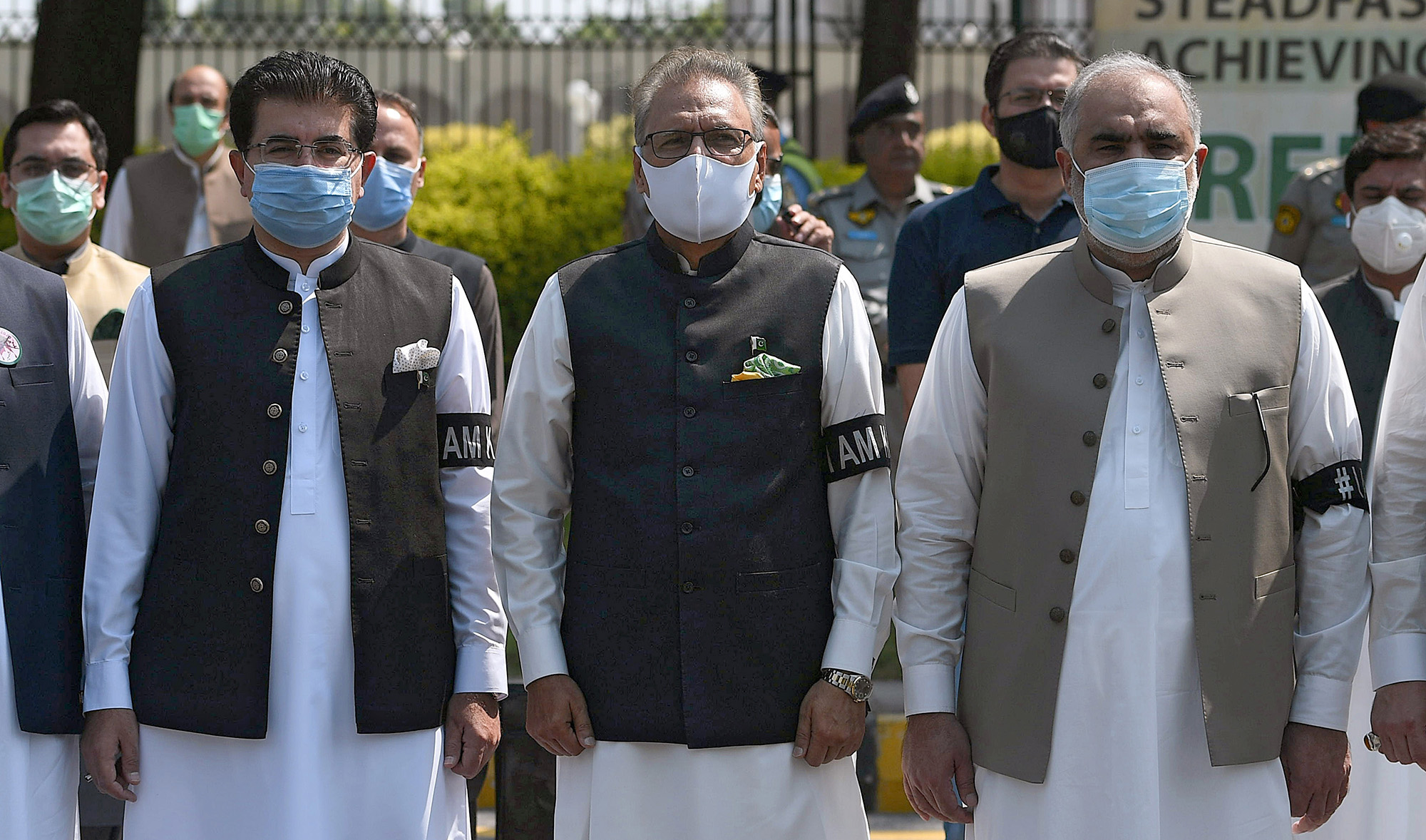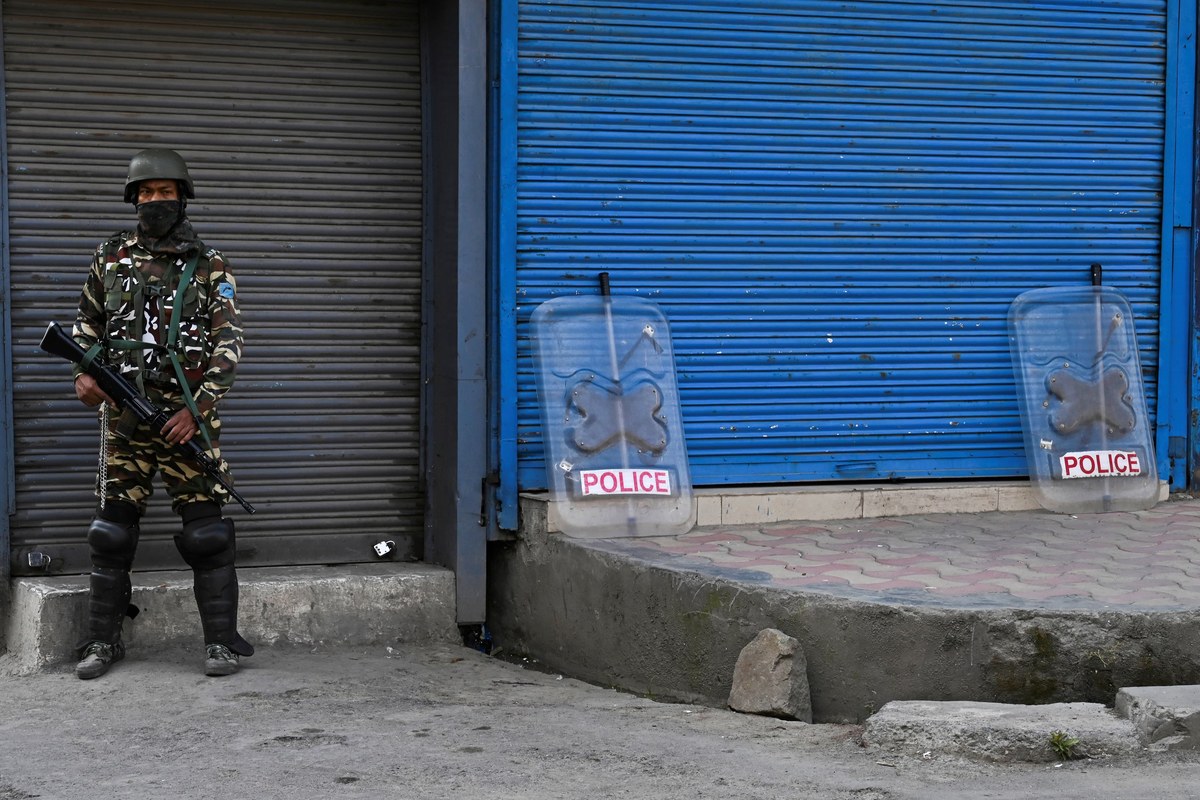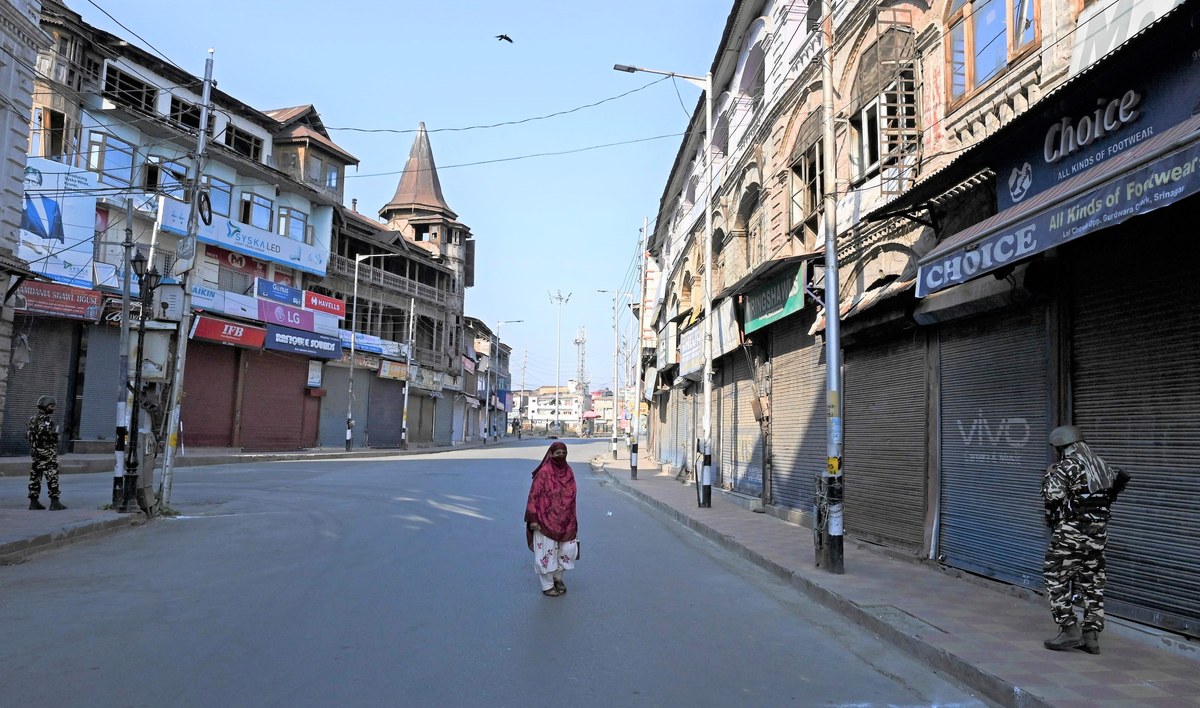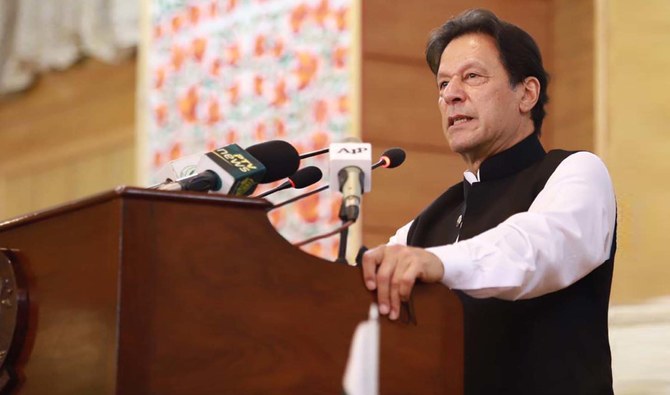ISLAMABAD: Pakistani Prime Minister Imran Khan said on Wednesday Indian Prime Minister Nardendra Modi’s move to revoke the special status of the disputed Kashmir region last August was a “strategic blunder.”
The prime minister was in Muzaffarabad on ‘Youm-e-Istehsal,’ a day of solidarity observed across Pakistan to mark the one year anniversary of India stripping Kashmir of its autonomy on August 5 last year and dividing it into two federally-administered territories.
The Himalayan valley is claimed in full by both India and Pakistan. The two countries have gone to war thrice over it, and both rule parts of it. The portion of the disputed region ruled by India has been plagued by separatist violence since the late 1980s.
While in Muzaffarabad, the PM led a solidarity rally and addressed the assembly of Azad Jammu and Kashmir (AJK), the part of the disputed region governed by Pakistan.
“India thought that when it showed its full might, the Kashmiris would surrender,” the PM said in his address to a special session of the AJK Legislative Assembly. “I think Modi made a strategic blunder.”
“The biggest false assumption that Modi made was that he thought that by posting 800,000 soldiers in the valley, he could strike fear in the hearts of the Kashmiris and then India would be able to change occupied Kashmir’s demography,” the PM said. “India is stuck in a blind alley. If it retreats, Kashmir will be free. The question is how long can they maintain this [when] the world is watching.”
A minute of silence was observed at 10am to mark Youm-e-Istehsal, when traffic across the country came to a halt. A rally in the capital was attended by President Arif Alvi, Foreign Minister Shah Mahmood Qureshi and other top leaders.

Pakistan's President Arif Alvi, center, stands with parliamentarians to observe one minute of silence during a rally to show solidarity with Kashmiri people on the eve of the first anniversary of India's decision to revoke the disputed region's semi-autonomy, in Islamabad, Pakistan, Wednesday, Aug. 5, 2020. (AP)
India’s August 5 move was accompanied by a communication blackout, widespread movement restrictions and mass detentions, including those of elected leaders.
In India, the anniversary of the day saw a heavy deployment of troops and barricades of barbed wire as India put Kashmir under the strictest lockdown in several months. Streets in the Kashmir’s main city of Srinagar were deserted, with armed paramilitary and police manning roadblocks to enforce a lockdown that was initially imposed on Tuesday to prevent any violent protests.
“If, over the past year, Kashmiris had appreciated the move [of repealing the region’s special status], India would not have to impose a lockdown,” President Alvi said, addressing a rally in the Pakistani capital on Wednesday.

A paramilitary soldier stands guard in front of closed shops during the one-year anniversary of the restive region being stripped of its autonomy in Srinagar on August 5, 2020. (AFP)
For almost a century, no outsider was allowed to buy land and property in Indian-controlled Kashmir but since August 5, under a new law, authorities have begun issuing “domicile certificates” to Indians and non-residents, entitling them to residency rights and government jobs, international media has reported. Many Kashmiris view the move as the beginning of settler colonialism aimed at engineering a demographic change in India’s only Muslim-majority region.

A woman walks along a street as security personnel stand guard during the one-year anniversary of the restive Kashmir region being stripped of its autonomy in Srinagar on August 5, 2020. (AFP)
Tens of thousands of civilians, rebels and government forces have been killed in the Kashmir conflict in Kashmir the last three decades.
“Eight million Kashmiris have been made prisoners in their own homes,” PM Khan said in a statement on Wednesday morning. “Their communication with the outside world has been deliberately revoked to hide the scale of human rights violations being perpetrated against them ... Young men are being extrajudicially martyred in “fake encounters” and so-called “cordon and search” operations, almost on a daily basis, while the real Kashmiri political leadership remains incarcerated.”
“It is imperative that the international community steps in immediately and backs its words of condemnation with practical steps that will force India to reverse its present course against the Kashmiri people,” Khan said. “Pakistan will stand shoulder-to-shoulder with its Kashmiri brethren until they realize their inalienable right to self-determination through free and impartial plebiscite under the auspices of the United Nations as per the relevant UNSC [United Nations Security Council] Resolutions.”
On Tuesday, Khan said his cabinet had approved a new ‘political map’ which should be considered the official map of the country both inside Pakistan and internationally.
An image of the map was shared with Pakistani media by the PM’s office in Pakistan and showed areas in the Himalayan Kashmir valley disputed with India as a part of Pakistan with these words printed across the relevant parts of the map: “Indian illegally occupied Jammu and Kashmir. (Disputed territory — Final status to be decided in line with relevant UNSC [United Nations Security Council] resolutions.)”
A dotted line that previously marked the disputed areas has been removed from the new map.
The UN Security Council adopted several resolutions in 1948 and in the 1950s on the dispute between India and Pakistan over the region, including one which says a plebiscite should be held to determine the future of mostly Muslim Kashmir. Another resolution also calls upon both sides to “refrain from making any statements and from doing or causing to be done or permitting any acts which might aggravate the situation.”
Meanwhile, India’s Modi on Wednesday launched the construction of a Hindu temple on a site that has been contested by Muslims for decades in a dispute that has sparked some of India’s most bloody communal violence.
The Supreme Court ruled last year that Hindus, who believe the site in Ayodhya is the birthplace of Lord Ram, a physical incarnation of the Hindu god Vishnu, be allowed to build a temple there.
Modi, whose Hindu nationalist Bharatiya Janata Party (BJP) campaigned for more than three decades for the temple, unveiled a plaque at the site in an elaborate ceremony to inaugurate construction.
“The whole country is thrilled, the wait of centuries is ending,” Modi said in a speech, after taking off a white mask that he wore as a novel coronavirus precaution.
Reacting to the development, Pakistan's foreign office strongly condemned the construction of Ram Mandir on the site where the historic mosque stood for around five centuries.
"The flawed judgment of the Indian Supreme Court paving the way for construction of the temple not only reflected the preponderance of faith over justice but also the growing majoritarianism in today’s India where minorities, particularly Muslims and their places of worship, are increasingly under attack," it said in an official statement. "A temple built on the site of a historic mosque will remain a blot on the face of the so-called Indian democracy for the times to come."
Hindus say the site was holy for them long before the Muslim Mughals, India’s most prominent Islamic rulers, built the Babri Mosque there in 1528.
Hindu protesters demolished the mosque in 1992, triggering riots in which about 2,000 people, most of them Muslim, were killed.












